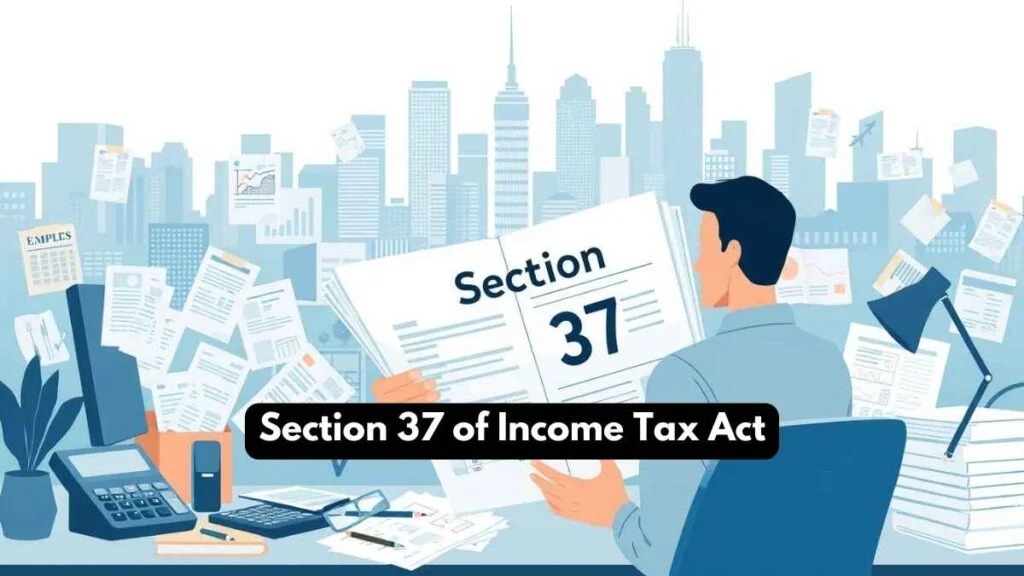
The Central Board of Direct Taxes (CBDT) recently made it clear that settlement costs associated with legal violations under certain regulatory laws will not be permitted as business deductions under Section 37(1) of the Income-tax Act, 1961. This is a major step to combat tax evasion and strengthen corporate accountability.
For businesses operating in regulated industries where regulatory settlements are common, such as finance, securities, and competition law, this development is particularly pertinent.
Understanding Section 37(1) of the Income-tax Act
A residuary provision known as Section 37(1) permits the deduction of business expenses that are paid for solely and exclusively for the purpose of conducting business or practicing a profession, so long as they are not:
• Capital in nature
• Personal in nature
• Covered under Sections 30 to 36
However, any expenditure made for illegal or legally forbidden purposes is prohibited by Explanation 1 to Section 37(1). Whether settlement payments made to regulatory bodies without an admission of guilt would still be regarded as “expenses for an offense” has been somewhat unclear over time.
CBDT Notification – What Has Changed?
Through Notification No. 38/2025 dated April 23, 2025, the CBDT has inserted Explanation 3 to Section 37(1), explicitly disallowing deductions for settlement amounts paid under certain laws.
Laws Covered under the Notification:
• Securities and Exchange Board of India (SEBI) Act, 1992
• Securities Contracts (Regulation) Act, 1956
• Depositories Act, 1996
• Competition Act, 2002
Any expense incurred to settle proceedings or alleged contraventions under these laws will now be deemed non-deductible, regardless of whether there is a formal admission of guilt.

Why This Matters?
This clarification stems from a more general idea: companies shouldn’t benefit tax-wise from breaking the law, even if the infractions are settled. It guarantees that tax benefits are only granted for justifiable business expenses and upholds a zero-tolerance policy towards non-compliance.
Implications for Businesses
- Increased Tax Burden: Settlement payments are no longer deductible expenses that businesses can use to lower their taxable income.
- Increased Compliance: Businesses are encouraged to implement more robust internal controls and compliance measures when there are more financial repercussions.
- Need for Updated Tax Planning: In view of this limitation, CFOs and tax experts must now review their tax plans.
- Impact on Reporting: In order to ensure accurate tax computation and an audit trail, settlement-related expenses must be properly disclosed and categorized.
Conclusion
The CBDT’s decision to forbid settlement costs from being deductible sends a strong message to businesses: adhering to the law is a must. The government hopes to guarantee that companies maintain high standards of ethical behavior and regulatory compliance by strengthening the provisions of Section 37.
This notification should act as a wake-up call for businesses in delicate industries like finance and competition to strengthen governance frameworks, proactively handle compliance risks, and steer clear of circumstances that might result in expensive—and now tax-inefficient—settlements.


admin
October 24, 2018Some need to protect very valuable information. All these factors should be taken into account.
admin
October 24, 2018I ran Windows XP for a year to try to prove it. Less knowledgeable users can get their PCs infected no matter how much protection you give them. Software can’t protect people from themselves.